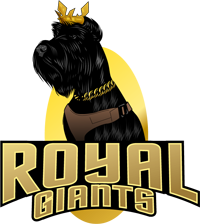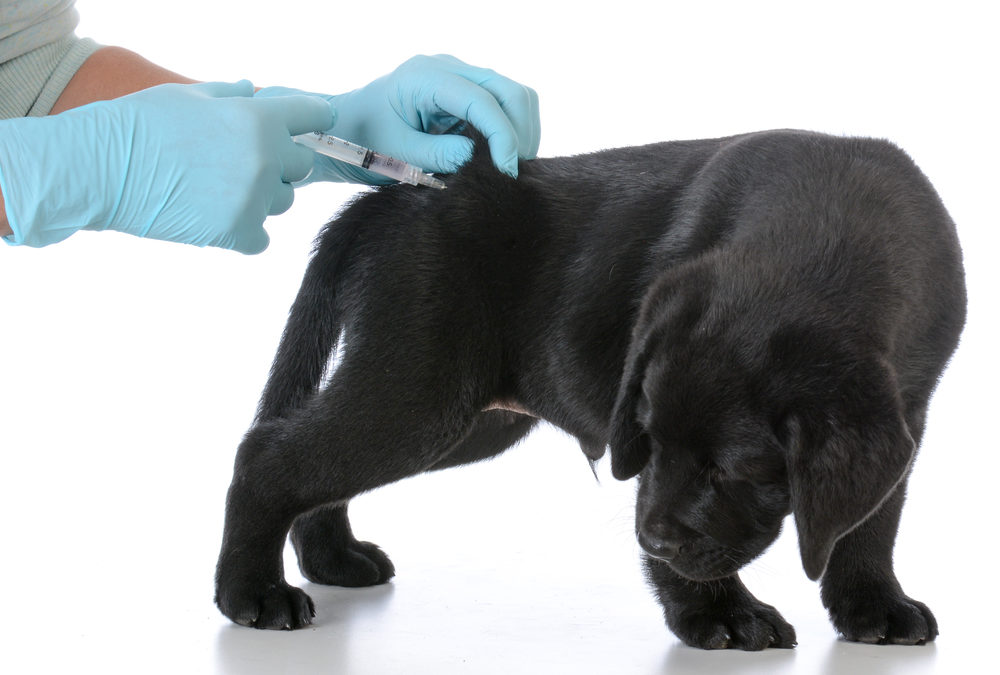Jumpstart your puppy’s immune system.
In their first year of life, giant schnauzer puppies will need to visit their veterinarian numerous times to get vaccinated for and become immunized against potentially fatal, yet preventable infectious diseases. The worst of these are Distemper and Parvo.
The timing and interval between booster vaccinations is critical to ensure your giant schnauzer puppy is protected, as their mother’s antibodies can interfere with a vaccination’s ability to mount your puppy’s own immune response. Giant Schnauzer puppies need a series of vaccinations to allow their immune system to “break through” waning maternal antibody.
When to vaccinate?
Giant Schnauzer Puppies should receive their first vaccinations at six to eight weeks of age. Be sure to get medical records for a newly purchased so your veterinarian can determine what has been given and when the next vaccine is due. Your veterinarian will then recommend a schedule depending on the lifestyle you envision for your puppy and risk of certain diseases based on where you live or travel.
Most vaccines are given every 2-4 weeks until actual protection is expected to be achieved. Depending on your puppy’s age, this may require 3-4 vaccinations for the Distemper/Parvo series until your puppy is 16-20 weeks of age
Core v. non-core vaccinations
Core vaccines should be given to ALL dogs and puppies. Non-core vaccines are given based on lifestyle and where you live/travel. Core vaccines include:
- DHP (also called DAP) – stands for Distemper, Hepatitis (or Adenovirus-2), and Parvo and are usually combined.
- Rabies – usually required by state or local law, which dictates the age and intervals for your dog.
Non-core vaccines are important, but not needed for all dogs. Vaccines in this category are:
- Parainfluenza – often combined with DHP.
- Leptospirosis – can be given separate or combined with DHP or DHPP. 2-vaccine series needed initially, followed by an annual booster.
- Bordetella – can be given intranasally, orally, or injectable. Route and interval to be determined by your veterinarian.
- Canine Influenza – 2 strains (H3N2 and H3N8), 2-vaccine series needed initially, followed by an annual booster.
- Lyme – 2-vaccine series needed initially, followed by an annual booster.
A typical puppy vaccination schedule:
- First vaccination: 6 weeks – DHP
- Second vaccination: 9 weeks – DHP
- Third vaccination: 12 weeks – DHP
- Fourth vaccination (Depending On Veterinarian): 16 – DHP
- Booster DHP: 1 year of age or 12 months after the last puppy shot, then as recommended (usually every 1-3 years)
- Rabies vaccination: typically required by law at 3-6 months of age with a booster 12 months later, then a booster every 1-3 years.
- Bordetella, Parainfluenza, and Canine Influenza recommended for social dogs (day camp, dog parks, boarding, grooming, dog shows).
- Lyme or Leptospirosis: May be recommended by your veterinarian if you live in or travel with your dog to an area where these are endemic.


Recent Comments